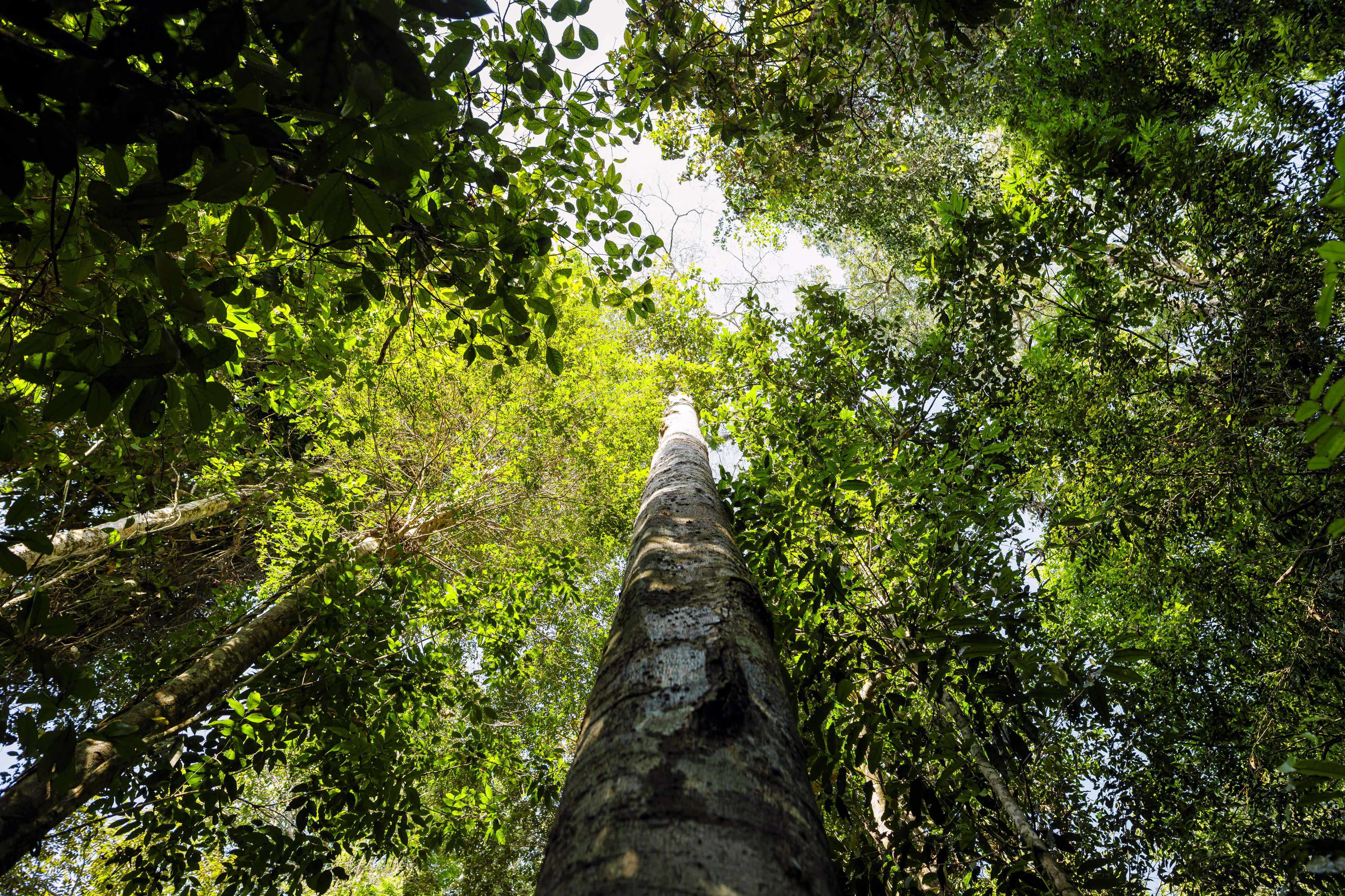Rainforest in Brazil
Copyright© Thomas Imo/BMZ/photothek.de
Forests and biodiversity Protecting forests and managing them sustainably
Yet in spite of their importance, the destruction of forests continues worldwide, especially in the tropical regions. In 2022, a total of 4.1 million hectares of particularly biodiverse tropical forest were lost, 10 per cent more than in 2021. Nearly 90 per cent of global forest loss is caused by the expansion of agriculture, for instance soya and palm oil cultivation.
Without forest conservation, the goals of the Paris Agreement cannot be reached. At the same time, negative impacts of climate change such as drought, heat, forest fires, storms and pests are putting additional pressure on forests, jeopardising their role as carbon sinks and habitats.
German activities
In order to halt and reverse global forest degradation, all stakeholders worldwide need to take more determined action. The German Development Ministry (BMZ) therefore participates in the Glasgow Leaders' Declaration on Forests and Land Use (External link), an alliance of more than 140 countries which together account for over 90 per cent of the world's forest area, and other stakeholders from the private sector and civil society. At the climate negotiations in Glasgow in 2021, they all committed to working together to end natural forest loss by 2030, restore 350 million hectares of forest and make agricultural supply chains deforestation free. In addition to adopting the Declaration, leaders also launched the Global Forest Finance Pledge (GFFP), which involves the provision of more than 12 billion US dollars in the period from 2021 to 2025.
During the climate negotiations in November 2022, an alliance of 26 countries and the EU launched the Forest & Climate Leaders' Partnership (External link) (FCLP), and the BMZ doubled Germany's contribution to the GFFP from one to two billion euros. The Partnership now has 33 members (as at July 2024). They have committed to lead by example on meeting their climate targets, to halt forest loss, to restore forests, and to foster sustainable land use. While the Partnership is led by governments, it seeks to ensure close engagement with the private sector and civil society.
Focus on Amazon region, Congo Basin and South-East Asia
The Paris Agreement and the Global Biodiversity Framework form the political basis for the BMZ's activities. Key guidance is also provided by international regulations for trade and for the private and financial sectors, for example with regard to deforestation-free supply chains.
The BMZ has long been working for sustainable forest management and forest restoration. At present (as at May 2024), the BMZ is supporting forest-related projects in over 40 countries. The support has focused on the main contiguous tropical forest regions: the Amazon lowlands, the Congo Basin and the forests of South-East Asia.
In terms of topics addressed, the focus has been on sustainable forest management, advice to forest ministries, forest ecosystem restoration, forest conservation for climate change mitigation, mangrove protection, and assistance with regard to forest conservation area management.
As at: 31/07/2024
